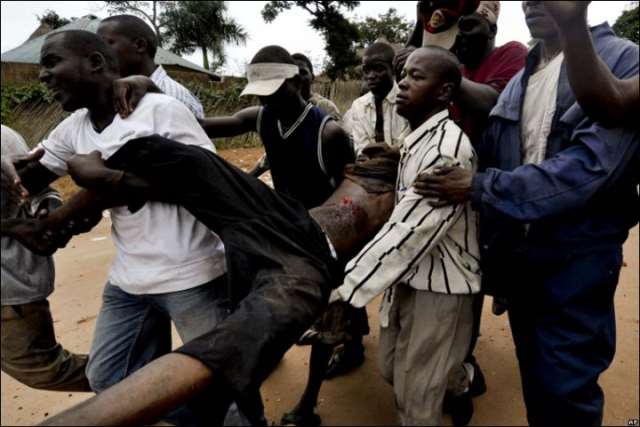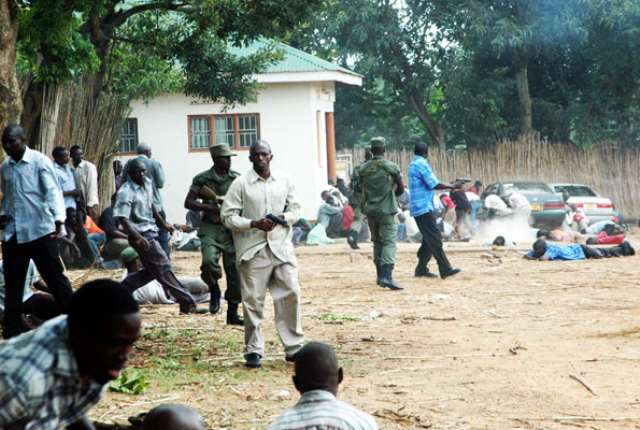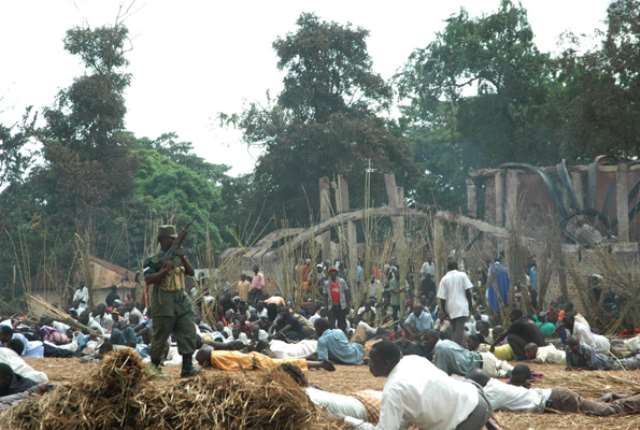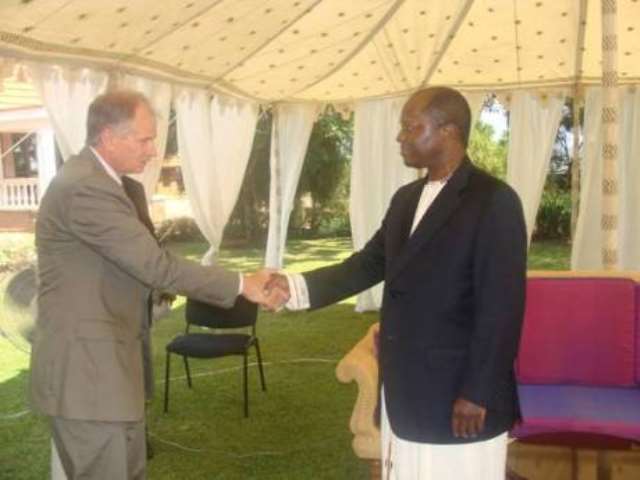Is Uganda Government Persecuting Citizens?
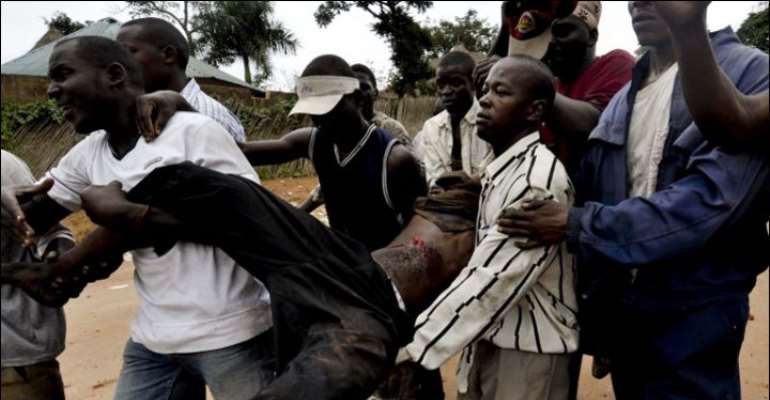
A recent call by His Majesty the Kabaka of Buganda Ronald Muwenda Mutebbi II, to the government in Kampala to stop persecuting Baganda, is a repeat to many voices whose relatives are yet to be traced nearly a year ago since the Kampala riots.
The Kabaka's call on August 4, 2010, was drawing awareness to the events that caused the fallout between his Kingdom and the central government in Uganda. The events include; the mysterious fires that razed part of the Kasubi Royal Tombs on March 15, 2010, the September 2009 riots that killed over 30 people, sparked by Uganda government's decision to block the Kabaka's visit to Kayunga, a region under his Kingdom. The closure of Buganda's radio, CBS FM, in the wake of the September riots, the 2008 arrest of the Kingdom's officials, Minister for Information and cabinet Affairs Charles Peter Mayiga, his former Deputy Minister of Information Medard Lubega Seggona and the then Buganda Central Civic Education Committee Chairperson Betty Nambooze. The trio had then publicly criticized the government's proposal amendments to the 1998 land Act.
In one of the events, the Government of Uganda has instituted a commission of enquiry into the Kasubi tombs that were burnt in March this year. Buganda Kingdom officials are sceptical because the terms of reference are not addressing the issue of people who were killed. The Kingdom's Attorney General, Apollo Makubuya said: “I'm concerned that the terms of reference do not extend to the people who were killed. I would like the cause of chaos that led to the killing of innocent people included.” The Attorney General added that, the investigations should be made public, a report published and recommendations acted upon.
Kabaka Mutebi II, in his August recent remarks called it the continue persecution of Buganda were among other things.
“Buganda has been divided, and many of its properties haven't been returned,” said His Majesty the Kabaka of Buganda, adding: “It is very disappointing that there are places in Buganda where it is said the Kabaka of Buganda must seek permission before visiting his people there.” The Kabaka was in reference to his September aborted tour when he was refused by the government to travel to Kayunga. He added: “We are together with those who lost their loved ones in Kasubi. We grieve with Buganda and the entire world for the burning of our traditional place of culture and history.”
“I also want to assure you that we shall not tire from our efforts of claiming our inalienable properties that belong to the Kabakaship; and we shall not tire from fighting against persecution,” the Kabaka said, adding: “We shall ensure that the current persecution of the Baganda is stopped. History show that time comes when who stick to what they think is right, triumph. We all know that people like Mahatma Gandhi, Martin Luther and Nelson Mandela stuck to what they believed in and eventually won.”
The Kabaka is the King of Buganda, one of ancient kingdoms in Africa and he is the hereditary monarchy within the state of Uganda. Kabaka Mutebi II's government at Mengo, has been on a confrontation with Uganda President Yoweri Museveni for a while. The tension between Mengo, Kabaka's government and the central government has left many families with either their relatives remain in detention or disappeared or dead. The situation is not far from public executions that became a trademark of Idi Amin's tyranny, Ugandans used to disappear, certainly not to be heard from again. Now many Baganda families whose relatives mysteriously gone missing in the past 2 years, now harbour the trauma and remain with constant fear as a result of disagreement between Mengo and central government. Relatives and friends of Hussein Kato, 27, in 2009, a former barber will never see him. “You can't lose two people in a family and think of putting things at rest, and think of moving on with your normal life,” Grace Kintu told this newspaper, adding that: “For Kato, we knew not his dealing because he was unpredictable, but his brother Wasswa [Hassan], had nothing. Wasswa was an innocent man and if he was killed because the actions of Kato, God will judge his killers harshly.” Mr Kintu, the proprietor of Hair Nest Saloon, and a former employer of one of the twin was referring to Wasswa who was killed because he failed to disclose the where about of his brother. Kato and Wasswa are names given to male twins in Buganda.
“It's not only the family is worried, am also worried as well because some times, the family puts it to me for not advising Kato. I have always explained to them that, I was just an employer who could not monitor Kato at all time,” said Mr Kintu, adding that: “First they are blaming me for the deaths of the twins but they have to understand that these people were not staying at my place.”
When asked about the real cause of the disappearance to both twin, Kintu replied: “I know this can't go away from the minds of the relatives, but you have to bail out me out of this issue, I don't want to discuss such issues at my work place any more. I still need life to live.” Where are all missing people? Is still a question that remains on the lips of many families, although the authorities in Kampala continue denying accusations of holding individuals. According to the BBC, over 550 people were arrested and among of them were a radio DJ including and MP from Buganda region. (See; http://news.bbc.co.uk/1/hi/world/africa/8254080.stm). Then, President Museveni, warned the Kabaka that his status as “Constitutional monarch” meant he could not take part in partisan politics.
Also in his pre-recorded statement to the nation, President Museveni said: “I also got information that Mengo elements got foreign funds to further their aims of fighting the NRM and undermining the Constitution. The President also complained that the Kabaka was not answering his repeated phone calls.
It was then emerged that the President suspected that his long time ally Libyan leader, Col. Muammar Gadhafi of having a hand in sponsoring elements in Mengo to riot.
Although, the US-based Human Rights Watch demanded for an independent investigation, into which over 30 people were killed, Uganda government has not done so to this date. (See: Investigate Use of Lethal Force During Riots ; http://www.hrw.org/en/news/2009/10/01/uganda-troops-killed-unarmed-people-riot-period) . In a recent research published on August 9, 2010, made by the organisation's researchers; Maria Burnett and Leslie Lefkow, after the Kampala twin bombing, where 80 football fans were killed, at Kyaddondo Rugby Club and Ethiopian restaurant, Human Rights Watch says: “There is a real risk that the Kampala attacks could spawn a host of hidden or unintended victims of abuse Ugandans, Kenyan and Ethiopian counterterrorism operations. Washington, which strongly condemned the Kampala bombings, should publicly condemn domestic human rights abuses in these countries and push for consistent accountability so that the threat of terrorism is not manipulated to entrench authoritarian rule. (See: http://www.hrw.org/en/news/2010/08/09/how-not-address-uganda-bombings).
